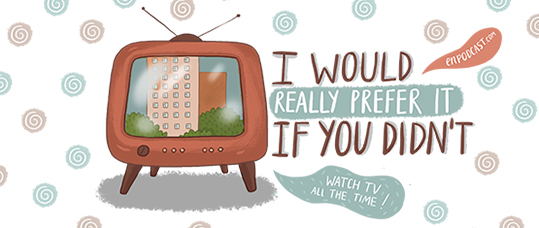I'd Really Prefer It If You Didn't...
Make no mistake about it. Just because native English speakers don't like to say “No”, it doesn't mean they don't know how to object or refuse.
To me, it's a matter of culture. The Americans and the English are raised to be very polite. Part of being polite (according to both groups) is using what we call “hedging” language. “Hedging” in this case doesn't mean a series of hedges (green bushes). It means an indirect way of speaking. For example, Karen would like to smoke in David's house. David doesn't allow smoking in his house.
Karen: Is it ok to smoke?
David: I'd prefer if you didn't smoke inside the house. You could sit outside on the porch for a few minutes if you'd like a cigarette.
As you can see, the negative answer is softened. Also, a positive suggestion is made as to how the situation can be fixed. Let's look at some more examples.
Jeff: Bob, what about a round of golf this weekend?
Bob: I'd love to, Jeff. Unfortunately, we've already got plans.
Jeff: I understand. What about next weekend?
Bob: That sounds great. I'll check with Linda (his wife) and let you know.
* * * * *
Janet is a secretary who works for two managers, Carol and Fred.
Carol: Janet, I need a financial report about Company X by 4 pm today.
Janet: I'm not sure, Carol. I've got several other things I need to finish. One is for you and two are for Fred.
Carol: I'm afraid that's not acceptable, Janet. I really need this report.
Janet: I completely understand. I have no problem putting your other task aside. However, I don't feel comfortable with stopping work on Fred's requests without his agreement.
Carol: Fine. I'll speak with Fred and get back to you.
* * * * *
Parent: I'll just make you a nice cup of tea.
Adult Child: I really appreciate it, dad, but I don't feel like tea just now.
Parent: But you must be thirsty after such a long trip.
Adult Child: I'll have a glass of water, thanks.
Parent: Just water? What about a drink of apple juice?
Adult Child: Water will be fine, thanks. Dad, what's this I hear about...
(That's what we call ‘changing the subject')
* * * * *
Harry and the gardener don't have a written contract, just a verbal agreement.
Harry: I'm sorry, but that's not what we agreed. We agreed that you would begin on Monday.
Gardner: Yes but something came up.
Harry: I'm not quite sure I understand what you are telling me.
Gardner: I have to finish some work on another job. I'm not sure when I'll be finished.
Harry: I really don't like that, I'm afraid.
Gardner: What do you want me to do?
Harry: Perhaps I'm not making myself clear. I'm saying that I expect you to begin on time.
Having said all this, if there is no other way, then even the native English speaker can say a plain and simple “No.” In situations where the other person just doesn't “get it”, we are forced to be blunt. (I would still probably add an “I'm sorry” though.)
I'm sorry but...
• no, you can't put your feet on the seats.
• no, I don't want to hear about your special deals on washing machines.
• no, we don't want to be patient; we want to speak with someone now.
Well, it's been a lovely visit. I really enjoyed myself. Can I stay and chat more? To be honest, I'm slightly busy at the moment and this is all the time I have right now … or, to put it bluntly, “no."
















